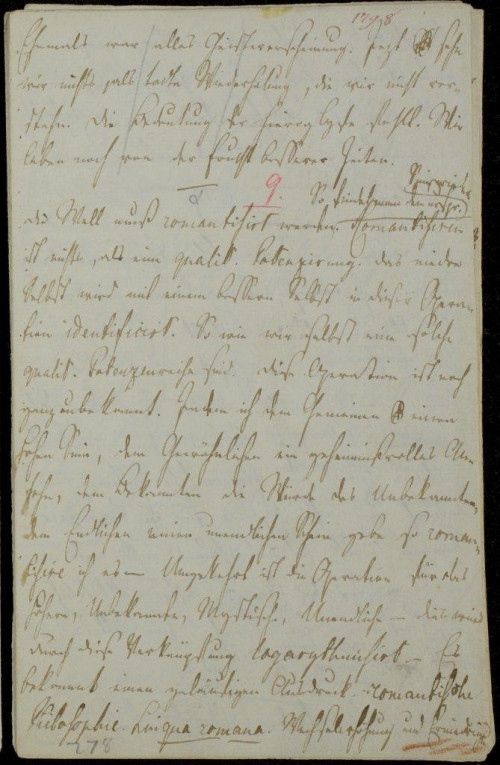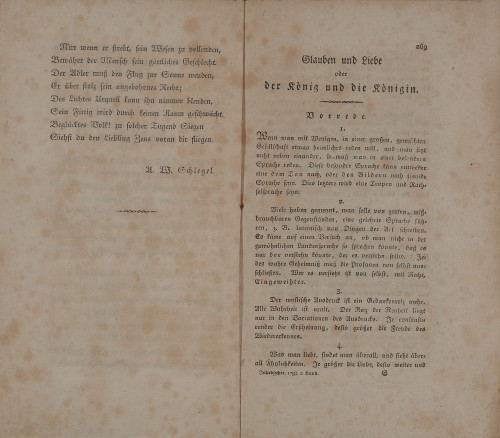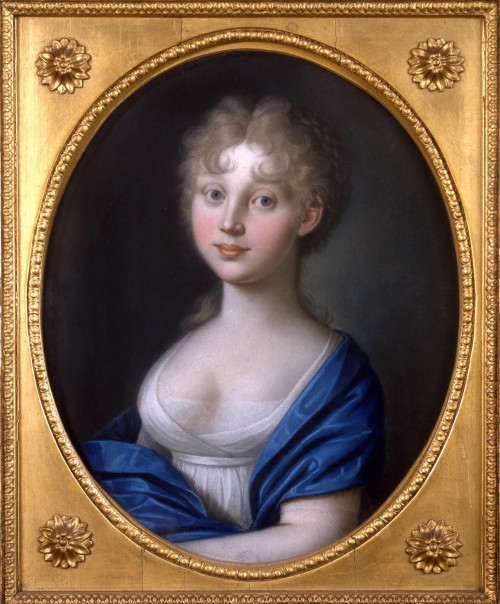It was around 1797 or ’98 that Nikolaus Lauer carried out the likenesses of Frederick William III and Luise of Prussia, seen here on the wall, in the pastel medium. They are framed by excerpts from the text Faith and Love, or the King and Queen by Novalis. The portrait and the text appeared roughly at the same time.
The poet Novalis, whose real name was Friedrich von Hardenberg, is considered one of the most important exponents of Early Romanticism. He is famous above all for his Fragments. In Novalis’s day, this literary form was highly appreciated for its openness, and soon became a literary genre in its own right. “The world must be romanticized”, Novalis wrote in his original manuscript, here on view. By that he did not mean that reality should be sugar-coated, but rather deliberately defamiliarized. The familiar and known were to become mysterious, and the unknown familiar.
Faith and Love demonstrates this kind of “romanticization”: The king and queen are described as an ideal ruling couple — which in reality they were not. In other words, they are “romanticized”. The story creates a tension between ideal and reality with the aim of taking the polity to perfection. The portraits depict the couple as simple and unassuming, without their crowns, making them seem approachable, almost ordinary.
In 1798, Novalis sent Faith and Love to his friend Friedrich Schlegel. In June and July of that year, Schlegel published it in the Yearbooks of the Prussian Monarchy.
At first sight, the text appears to pay homage to the rulers, for example when it says: “Every educated woman and every conscientious mother should have a picture of the queen in her own or in her daughters’ drawing room.” But then there are also unexpected sentiments, for instance: “All human beings should become capable of ascending the throne.” Here the king and his subjects are suddenly treated as equals.
Not surprisingly, the third part of the work was no longer accepted for publication in the Yearbooks. The king had evidently read the text and retorted by saying: “More is demanded of a king than he is capable of achieving.”
Objects
-

FRIEDRICH VON HARDENBERG (NOVALIS)
Die Welt muß romantisirt werden, Spring 1798
-

FRIEDRICH VON HARDENBERG (NOVALIS)
Glauben und Liebe
In: Jahrbücher der preußischen Monarchie. Herausgegeben von Friedrich Eberhard Rambach. Berlin: Unger Juni / Juli 1798. Teil 1: Blumen, Juni 1798, S. 184–185. Teil 2: Glauben und Liebe oder der König und die Königin, Juli 1798, S. 269–286.
-

NIKOLAUS LAUER
Luise Queen of Prussia, 1797/98; Friedrich Wilhelm III. King of Prussia, 1797/98;